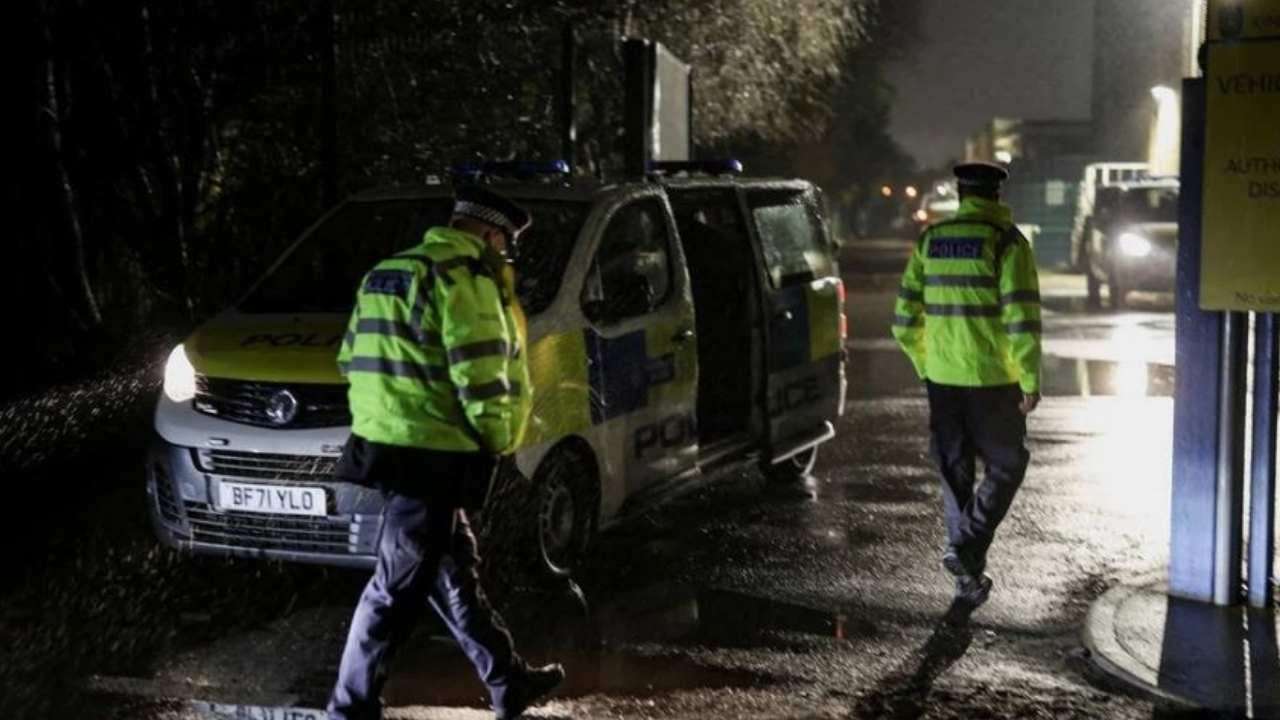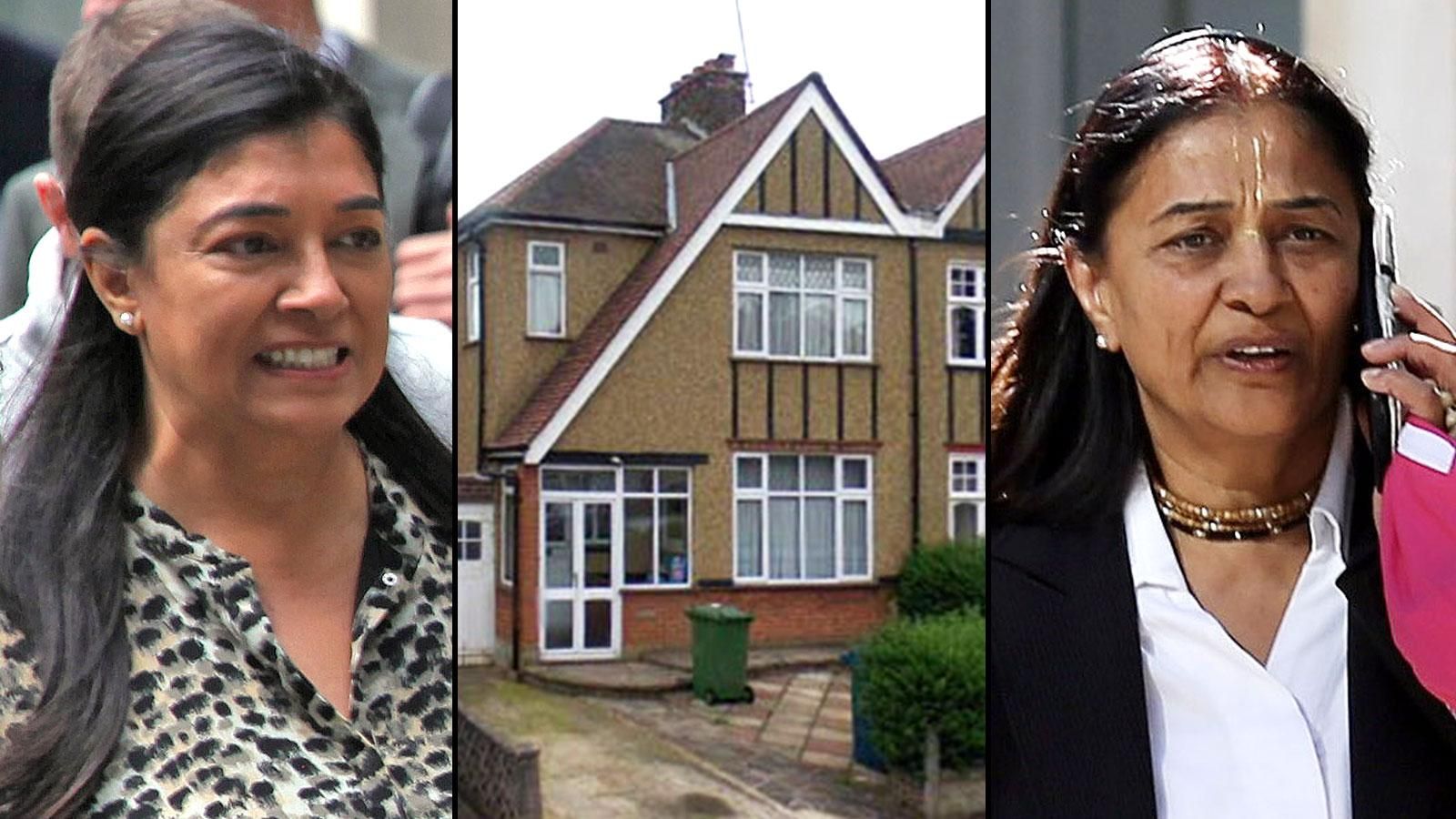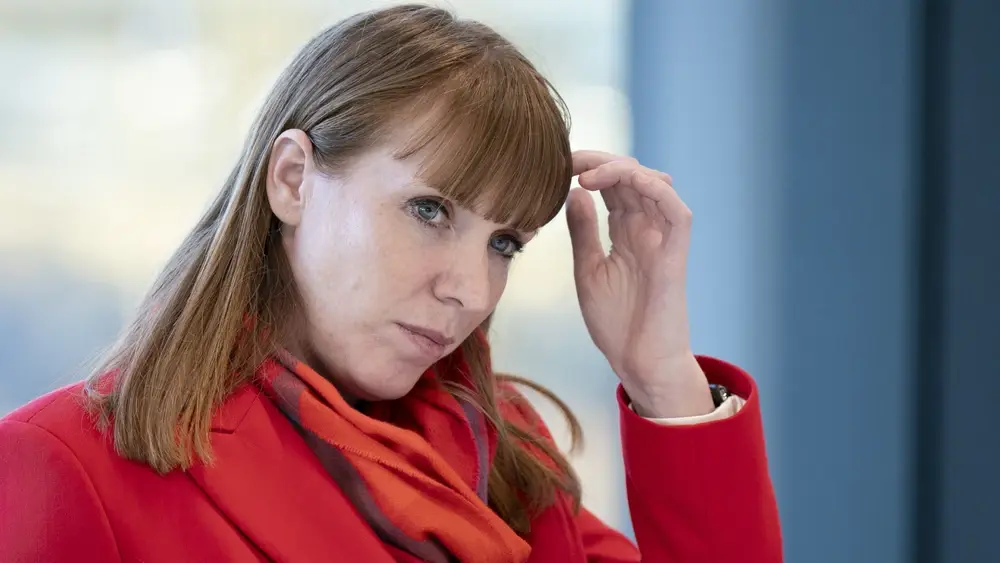A high-stakes legal battle over a £600,000 inheritance has exposed deeper fault lines within a British Indian family, drawing attention to the increasingly complex and often contentious issue of wealth distribution in South Asian diaspora communities. The High Court is currently presiding over a fierce dispute involving the will of Laxmikant Patel, whose decision to leave two of his children a mere £250 each, while bequeathing his substantial Harrow home to his eldest daughter, has ignited a bitter sibling rivalry.
Laxmikant Patel, an 85-year-old patriarch who passed away in October 2021, left a will that dramatically deviated from his previously stated intentions. His eldest daughter, 58-year-old Anju Patel, was granted the entire £600,000 family home on Cambridge Road. In sharp contrast, his younger daughter, Bhavenetta Stewart-Brown, 52, and son, Piyush Patel, 62, were each left with a paltry £250. Anju claims her father justified this drastic move by citing "mistrust" towards Mrs. Stewart-Brown and asserting that both she and Piyush had "failed in their sense of duty" as his children. Despite the minimal cash gifts, Anju maintains her father's poignant declaration: "But as a father, I have not forgotten them."
The will is now under intense legal scrutiny, with Bhavenetta Stewart-Brown leading the challenge to have it overturned. She argues that her father did not fully "know and approve" its contents, highlighting the unusual circumstance of the will being written entirely in English—a language she contends he could not properly read. Mrs. Stewart-Brown seeks to uphold an earlier will from October 2019, which would have divided the £600,000 estate almost equally among the three siblings, with Anju receiving an additional £50,000 to balance out previous financial assistance given to her siblings.
Anju Patel, however, is staunchly defending the current will, insisting her father had compelling reasons for disinheriting her younger siblings. She alleges that her father had labeled his son Piyush, who lives in Texas, a "hugely controlling figure," even claiming he refused to scatter their deceased mother's ashes in India. Furthermore, Anju's defense claims Laxmikant perceived Mrs. Stewart-Brown, an inspector with the Care Quality Commission, as having an "apparently bad temper" and having "taken massive advantage of her father."
A Life Rebuilt, A Will Under Scrutiny
Laxmikant Patel's journey was that of many first-generation Indian immigrants. He was described in the High Court by Deputy Master Jason Raeburn as a gentle, hardworking individual who built a new life for his family in the UK after migrating from Uganda in the early 1970s. He diligently worked shifts at the Ford motor plant in Dagenham while his wife, Shardaben, ran a newsagent’s. A deeply religious man, he was a daily devotee at the Swaminarayan temple in Neasden, North London, to which he and his wife collectively donated a significant sum of approximately £180,000 throughout their lives.
The circumstances surrounding the creation of Laxmikant's final will in August 2021, shortly after his lung cancer diagnosis, have raised considerable suspicion. Timothy Sherwin, barrister for Mrs. Stewart-Brown, highlighted several "odd" aspects. Anju claims her father gave instructions for the will to Vijaykant Patel, an associate from their shared Hare Krishna temple, who also claimed to be a friend of her father's. Vijaykant stated he visited Laxmikant in Northwick Park Hospital two days after the cancer diagnosis.
Mr. Sherwin pointed out that Vijaykant, who is not a qualified lawyer, claimed to have had a nearly hour-long meeting with Laxmikant, despite his severe respiratory illness, and was given instructions that starkly contradicted the deceased's earlier wills.
Vijaykant's notes reportedly quoted Laxmikant expressing "revulsion" towards Bhavenetta and Piyush, believing they were solely "after his property," and declaring: "Everything goes to Anju." The barrister added to the court's suspicion, stating, "The purported execution of the 2021 will took place shortly after the deceased was admitted to hospital for lethargy, dizziness and coughing up blood. That will was in English, a language he could not properly read."
Mrs. Stewart-Brown further alleges a long-standing estrangement, claiming Anju drifted apart from the family after moving to India at age 15 and embracing the Hare Krishna faith, which contrasted with the family’s traditional Swaminarayan Hindu beliefs. She asserts Anju only "rejoined the family" around 2018. The barrister argued that such a radical shift in the will, from a near-equal split to disinheritance in just two years, was inexplicable without a "major and incontrovertible change in circumstances," which he claims did not occur. He also alleged that from 2019 onwards, Anju and her husband became significantly more involved in Laxmikant's finances and personal affairs, controlling access to him, particularly during the critical August 2021 period, and allegedly isolating him from his lifelong Swaminarayan faith.
Defence and Growing Concerns in South Asian Families
Anju, who returned to the UK in 1983, has adamantly denied any estrangement from her parents. Her barrister, James Kane, asserts she always "shared a close and loving relationship" with them. From the witness box, Anju herself stated, "I wasn't estranged from my family, I was with my sister. She chose to disconnect from me."
Mr. Kane countered that their father had progressively grown disillusioned with Mrs. Stewart-Brown, citing an alleged 2018 incident where she "removed important documents from a locker or safe deposit box belonging to him, including the title deeds to the property, insurance documents and bank statements." He argued that by late 2019, Laxmikant had already formed a "sharply negative view of both Piyush and Bhavenetta," as evidenced by his comments to the will writer at the time. Mr. Kane concluded that after his cancer diagnosis, Laxmikant decided to act on this long-held view, instructing his friend Vijaykant to draw up the will in favour of Anju, "the child he felt had done most for him." Vijaykant Patel, as executor, is defending the claim alongside Anju, while Piyush maintains a neutral stance.
This case highlights a growing problem within Indian and broader South Asian diaspora families regarding inheritance and succession. Cultural expectations of filial duty, respect for elders, and community standing often clash with individual autonomy and Western legal frameworks. Disputes frequently arise from factors such as undocumented wills or verbal promises, where many elders, particularly first-generation immigrants, might not fully grasp the complexities of UK probate law, leading to ambiguity. Shifting family dynamics, as children assimilate into different cultural norms or marry outside the community, can also impact inheritance decisions. Religious and social obligations, including significant donations to religious institutions or support for specific family members who care for aging parents, often influence how assets are distributed, sometimes leading to perceived unfairness among siblings. Furthermore, a long-standing lack of transparency in financial affairs often breeds suspicion and distrust when wills are finally revealed. Finally, the strong cultural expectation for children to provide "duty of care" to aging parents means that when parents feel this duty hasn't been met, it can significantly impact their testamentary decisions, as allegedly seen in the Patel case.
Public Opinion Weighs In
The contentious nature of this inheritance battle has resonated deeply with the public, sparking widespread discussion across social media and within the Indian diaspora. Online comments reflect a mix of sympathy, suspicion, and caution. Many express profound sadness at seeing a family torn apart by financial disputes, with some lamenting, "So sad to see families ripped apart by money."
A significant portion of the commentary questions the fairness of the will, with remarks like, "Why would a father do that to his own children?" and "The older sister clearly manipulated him." Others, however, urge caution and suggest there might be more to the story, stating, "He must have had a good reason if he changed his will," and "This is why you need proper lawyers for wills." The mention of differing religious beliefs between family members has also led some to speculate, with comments such as, "Religion seems to be a factor here," highlighting the complex dynamics at play.
The High Court trial continues as the family seeks resolution to this deeply personal and financially significant dispute, one that mirrors similar challenges faced by many Indian and South Asian families navigating cultural traditions within a modern legal landscape.








.svg)




